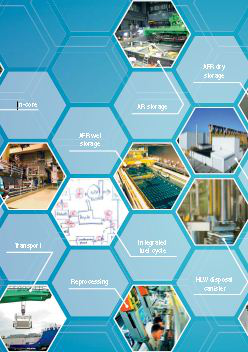Speaker
Mr
Steven Jones
(U.S. Nuclear Regulatory Commission)
Description
Following the challenges to wet storage of spent fuel during the events at Fukushima, the U.S. Nuclear Regulatory Commission (NRC) evaluated whether the reduced density of spent fuel in at-reactor wet storage would provide a substantial enhancement in safety. The reduced storage density would be achieved through expedited transfer of fuel to dry storage such that only fuel with less than 5 years decay would remain in wet storage. The effect of changes in storage density on the frequency and consequences of an event that drains the coolant from a spent fuel pool were drawn from a detailed consequence study evaluating the effects of a large earthquake on a spent fuel pool in a Boiling-Water Reactor with a Mark I containment design. The study compared high-density and low-density loading conditions in existing fuel storage racks and assessed the benefits of previously implemented mitigation measures. The study found that the density of spent fuel storage had little effect on the frequency of a radiological release, but the consequences of a radiological release from unmitigated damage to the spent fuel pool structure could significantly change. The NRC combined information from past studies of spent fuel storage safety and spent fuel storage licensing activities with the consequence study results to develop a conservative estimate of the safety benefit that could result from reduction in the density of spent fuel storage for the entire fleet of at-reactor storage pools. This evaluation was consistent with previous studies that demonstrated high-density storage of spent fuel in pools protects public health and safety. Furthermore, the evaluation found that a transition to low-density storage would provide only a minor or limited safety benefit, and that its expected implementation costs would not be warranted when compared with the expected benefits.
Country/ int. organization
U.S.A.
Primary author
Mr
Steven Jones
(U.S. Nuclear Regulatory Commission)

